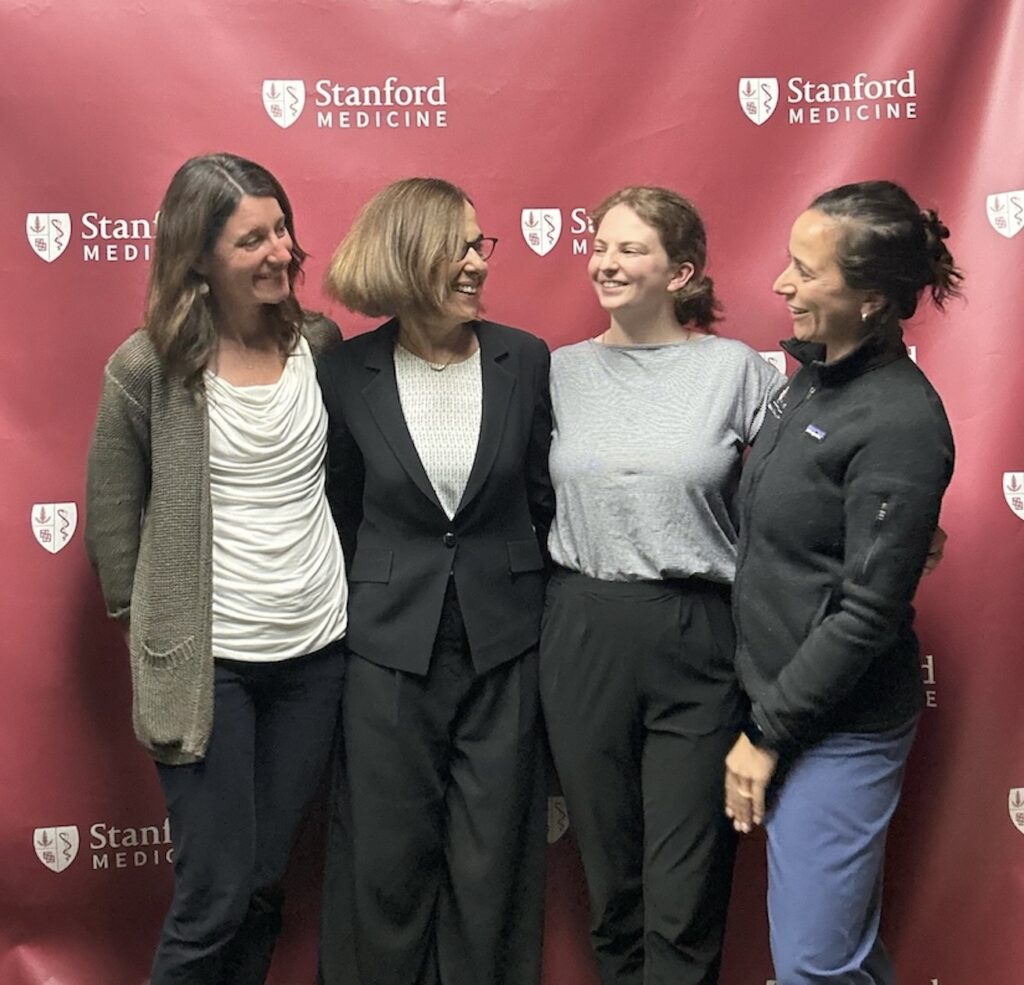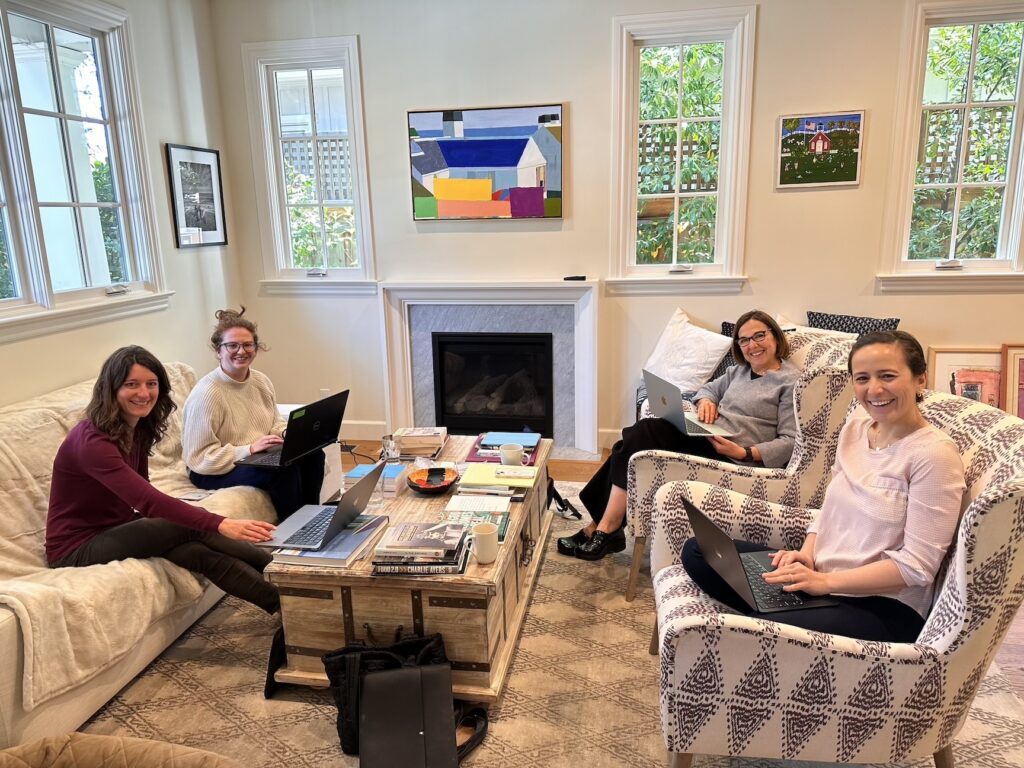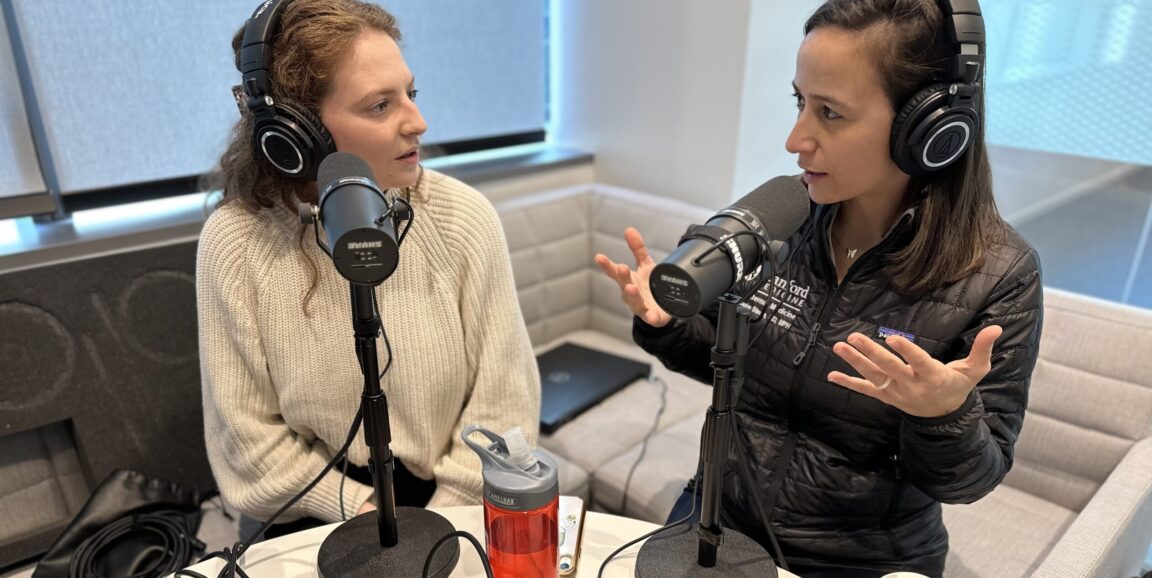A young adult grappling with murky memories -- but permanent side-effects -- of cancer treatment as a child. A woman recently declared breast-cancer-free who opens her mailbox to find a staggering hospital bill. A parent recalling the moment, years earlier, when they learned their first-born had life-threatening cancer. A young adult who wakes in the night to a mysterious pain and spends the predawn hours spiraling into the thought that their cancer may have recurred.
Cancer survivorship is often challenging. It's rarely possible to return entirely to life "before." But it can be difficult to feel heard in the face of a narrative laced with words like relief, happiness and gratitude.
"I can vividly recall hearing from a cancer survivor talking about the time after initial treatment, 'What's going to come next is really hard,'" said clinical assistant professor of medicine and cancer survivor Natasha Steele, MD. Steele was diagnosed with lymphoma during her first month as an internal medicine intern at Stanford Medicine, when her newborn daughter was just weeks old and the COVID-19 pandemic was just beginning.
"I believe a lot of survivors have that memory of hearing that and thinking to themselves, 'How could things be harder than now, when going through treatment is a full-time job that impacts every part of your life?"
"Health After Cancer" -- a 14-episode podcast produced at Stanford Medicine, tackles many of the issues that commonly accompany the badge of "cancer survivor" in compassionate, thoughtful and sometimes humorous discussions with guests who reflect the many facets and diverse concerns of survivorship.

"We wanted to highlight some of the universal themes of this experience, while also giving space for individual stories," said podcast co-host Stephanie Smith, MD. "Cancer survivorship really applies to the common lived experiences shared by anyone ever diagnosed with cancer, whether they are still in treatment, are cancer free, or are on chronic anticancer therapy. Hopefully our listeners will be able to reflect on others' experiences and see themselves or their loved one and feel a little bit less alone."
A continuum of care for survivors
Smith, an instructor of pediatrics and pediatric oncologist, and Steele are joined on the podcast by Lidia Schapira, MD, professor of medicine and the inaugural director of Stanford Medicine's Cancer Survivorship Program, and former clinical research coordinator associate and childhood cancer survivor Elle Billman, now a medical student at the Icahn School of Medicine at Mount Sinai in New York. The podcast arose out of a continuing medical education course that Schapira's team launched in 2020 about how to care for cancer survivors.
"We wanted to create a parallel resource for cancer survivors," Smith said. "Something that was accessible and reachable."
Feeling lonely, confused or frustrated are common experiences for cancer survivors. Some challenges include how to relate to a new post-treatment body; mental health and fears about recurrence; the effect of the cancer treatment experience on caregivers or partners; sexual health; returning to work and navigating a fragmented health care system.
"When a person receives a cancer diagnosis and begins intensive treatment, they will often have a community of other people with the same diagnosis and treatment," Steele said. "But when they transition out of cancer care, they often find themselves in a kind of white space. They might have lost touch with their primary care provider but no longer require oncology care."
They want to move forward and regain control of their health but they don't always know how.
Natasha Steele
"They can feel lost in this transition, that they are without a medical home. And there are so many challenges to navigate," she said. "They want to move forward and regain control of their health but they don't always know how. We tried to capture enough diverse voices and experiences in our podcast to have something that everyone can relate to."
The episodes feature cancer survivors who share their experiences and lessons in cancer advocacy as well as experts in mental health, wellness, genetic counseling and primary care. Topics include, among others, "When Cancer Finds you Twice," "Finding a Doctor after Cancer," "An Empowered Survivor," and "Coping with Fears after Cancer."

Finding ways through post-cancer concerns
"One thing we found across the board," Steele said, "was the impulse or drive to transform the cancer experience into something different. Some people write books, others become advocates, some start financial organizations to support cancer patients. We wanted to show, with this podcast, that there are ways to transform some of this suffering, that it's OK to find ways not necessarily to move on, but to move through this experience."
The podcast hosts hope to eventually record and release a second season of the podcasts further exploring topics of survivorship in underrepresented and economically disadvantaged communities. But they are also eager to take some of the lessons from their guests and use them to improve the care of cancer survivors across the country.
We need to scream it from the rooftops, what people are telling us, because this can't live in the ivory towers of academia.
Stephanie Smith
"We need to scream it from the rooftops, what people are telling us, because this can't live in the ivory towers of academia," Smith said in the podcast's last episode, in which the moderators reflect on the first season.
"We need to capture the voices, and go to the policy level and make structural changes that will change how we care for cancer survivors across the life course so that people aren't lost. And so that even those who don't have enough money to pay for everyday things will still be able to get the medical care and the psychosocial care that they need to thrive throughout their lives."
The podcast can be found at Apple Podcast, Spotify or on the podcast's website. Additional survivorship resources and reflections by Steele and Billman about the launch of the podcast can be found at cancer.net






